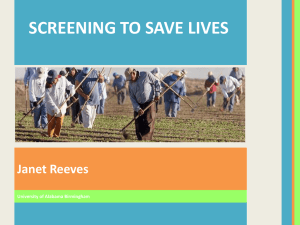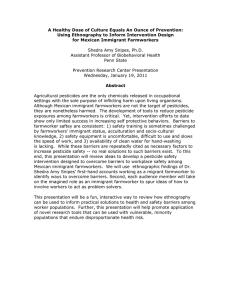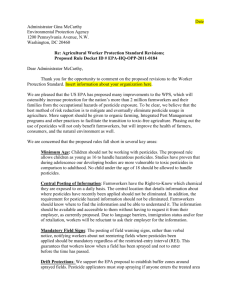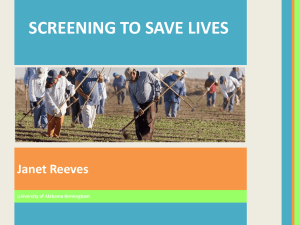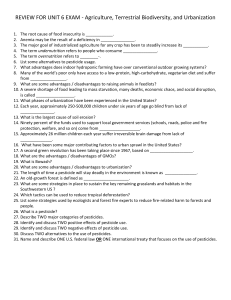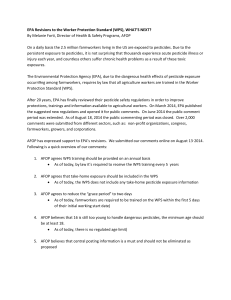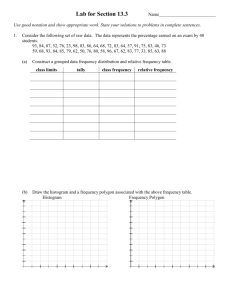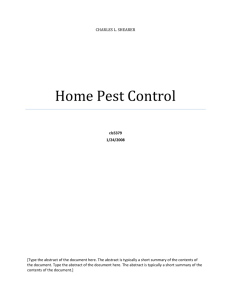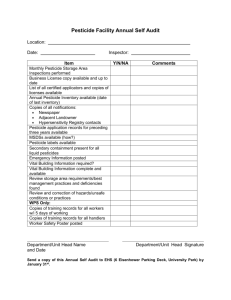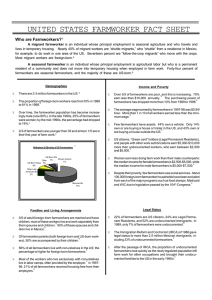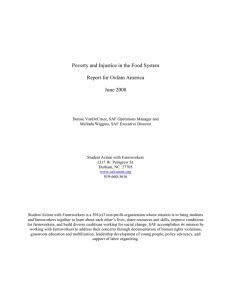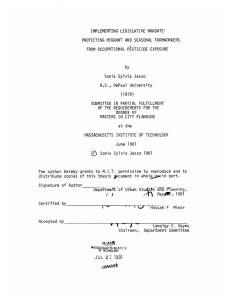PoisonPrevention Awareness Week 2015
advertisement
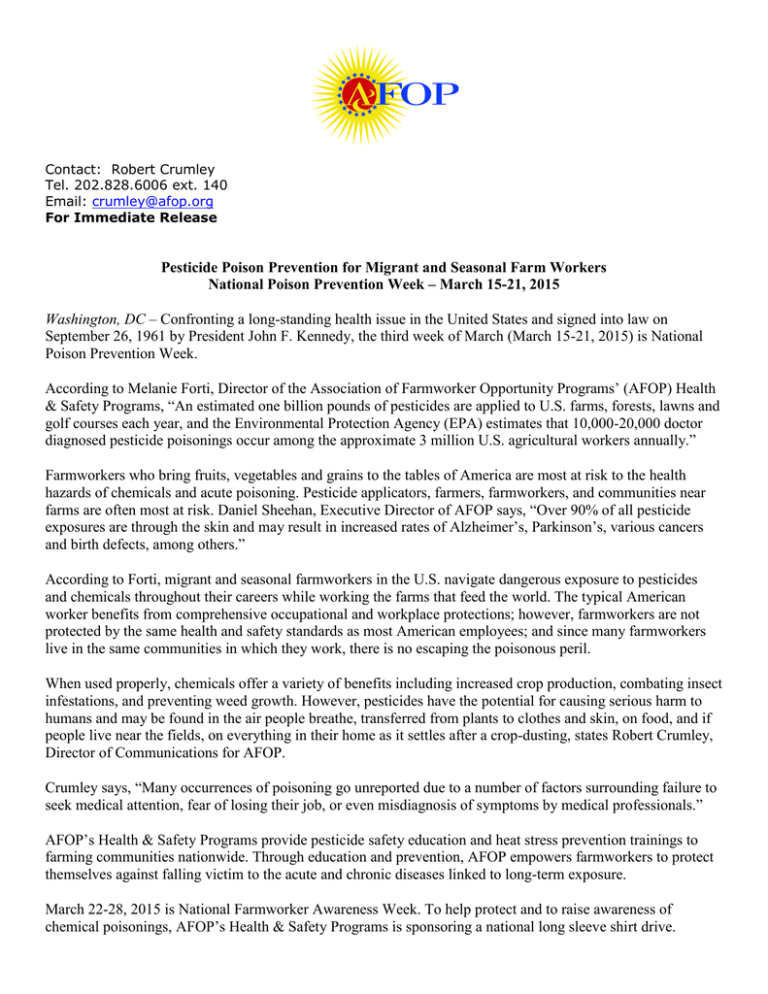
Contact: Robert Crumley Tel. 202.828.6006 ext. 140 Email: crumley@afop.org For Immediate Release Pesticide Poison Prevention for Migrant and Seasonal Farm Workers National Poison Prevention Week – March 15-21, 2015 Washington, DC – Confronting a long-standing health issue in the United States and signed into law on September 26, 1961 by President John F. Kennedy, the third week of March (March 15-21, 2015) is National Poison Prevention Week. According to Melanie Forti, Director of the Association of Farmworker Opportunity Programs’ (AFOP) Health & Safety Programs, “An estimated one billion pounds of pesticides are applied to U.S. farms, forests, lawns and golf courses each year, and the Environmental Protection Agency (EPA) estimates that 10,000-20,000 doctor diagnosed pesticide poisonings occur among the approximate 3 million U.S. agricultural workers annually.” Farmworkers who bring fruits, vegetables and grains to the tables of America are most at risk to the health hazards of chemicals and acute poisoning. Pesticide applicators, farmers, farmworkers, and communities near farms are often most at risk. Daniel Sheehan, Executive Director of AFOP says, “Over 90% of all pesticide exposures are through the skin and may result in increased rates of Alzheimer’s, Parkinson’s, various cancers and birth defects, among others.” According to Forti, migrant and seasonal farmworkers in the U.S. navigate dangerous exposure to pesticides and chemicals throughout their careers while working the farms that feed the world. The typical American worker benefits from comprehensive occupational and workplace protections; however, farmworkers are not protected by the same health and safety standards as most American employees; and since many farmworkers live in the same communities in which they work, there is no escaping the poisonous peril. When used properly, chemicals offer a variety of benefits including increased crop production, combating insect infestations, and preventing weed growth. However, pesticides have the potential for causing serious harm to humans and may be found in the air people breathe, transferred from plants to clothes and skin, on food, and if people live near the fields, on everything in their home as it settles after a crop-dusting, states Robert Crumley, Director of Communications for AFOP. Crumley says, “Many occurrences of poisoning go unreported due to a number of factors surrounding failure to seek medical attention, fear of losing their job, or even misdiagnosis of symptoms by medical professionals.” AFOP’s Health & Safety Programs provide pesticide safety education and heat stress prevention trainings to farming communities nationwide. Through education and prevention, AFOP empowers farmworkers to protect themselves against falling victim to the acute and chronic diseases linked to long-term exposure. March 22-28, 2015 is National Farmworker Awareness Week. To help protect and to raise awareness of chemical poisonings, AFOP’s Health & Safety Programs is sponsoring a national long sleeve shirt drive. Wearing long sleeve shirts helps protect farmworkers from pesticide exposure and heat related illnesses while working in the fields. Shirts will be distributed free of charge to farmworkers in participating communities. For more information about National Poison Prevention Week, National Farmworker Awareness Week and the Long Sleeve Shirt Drive, or AFOP’s Health & Safety Programs, please visit www.afop.org. For in-depth information on specific chemicals visit the EPA’s website (http://www.epa.gov/oppfead1/safety/healthcare/handbook/handbook.htm) and read their publication: Recognition and Management of Pesticide Poisonings 5th Edition. The Association of Farmworker Opportunity Programs is a non-profit, national federation of 52 non-profit and public agencies that provide training and employment services to migrant and seasonal farm workers. Our mission is to improve the quality of life for all farmworkers and their families through advocacy, education, and training. For additional comment or an interview, please contact Melanie Forti, Director of Health & Safety Programs at 202.828-6006 ext. 107 or forti@afop.org.
